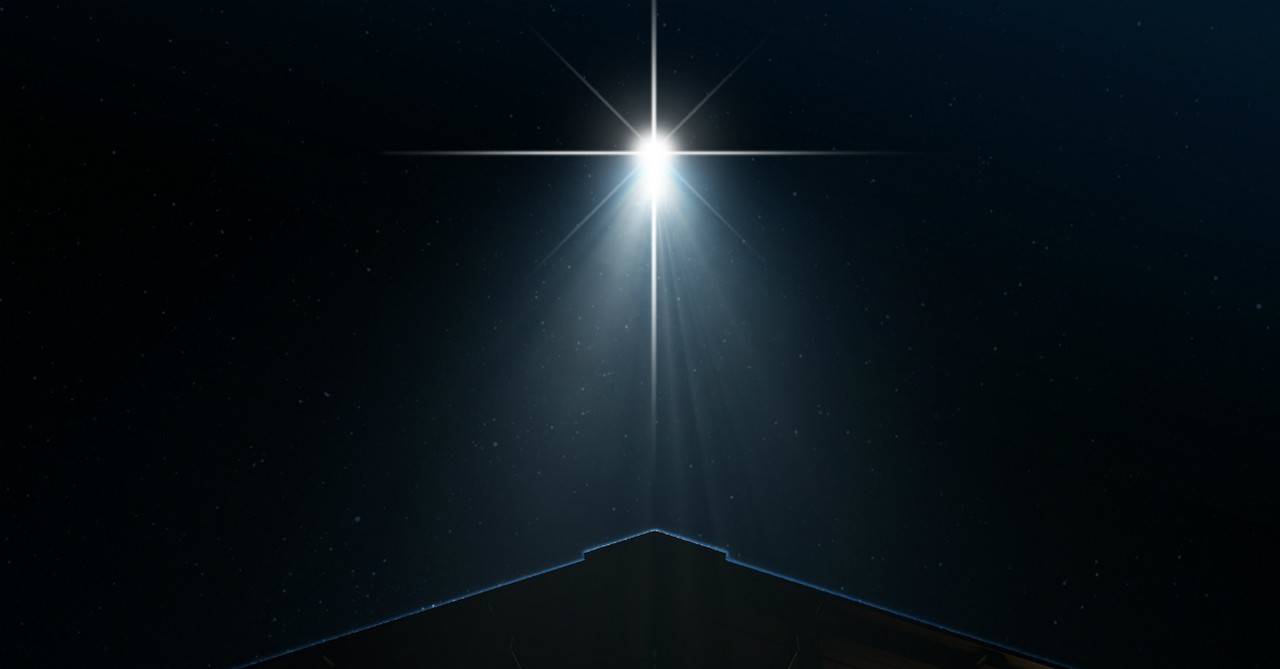Seeing the Light of Christmas: A 7-Day Devotional through Luke

When many people think of the Christmas story, they turn to Luke 2. After all, it is here in Luke 2 that we read of the birth of the Savior. But the beauty of that story is set against the backdrop of promises fulfilled. There are rich characters in Luke 1 who help us see the longing for redemption.
In Luke 1, we see cynicism. We see doubt. We see hurt and shame. We also see repentance and beautiful pictures of faith. Ultimately what we see are promises fulfilled.
Here are seven devotions from Luke 1 (and a few OT passages here and there) to help us see the light of Christmas and relish in the promises of God being fulfilled.
Photo Credit: © Getty Images/lovleah
Christmas Is about Promises Fulfilled

Christmas Is about Promises Fulfilled
SLIDE 1 OF 7
“But when the fullness of time had come, God sent forth his Son, born of woman, born under the law, to redeem those who were under the law, so that we might receive adoption as sons.” (Galatians 4:4-5)
One translation says, “at just the right time.” Christmas is about many things. One of those things is that God keeps his promises. “When the fullness of time had come.” Christmas was the fulfillment of a promise that was a long time coming.
There were promises made about 500 years before Christ through the prophet Zechariah. Promises that a rescuer was coming. But those promises go even further back. Such a promise was given to King David some about 1000 years before that fullness of time had come.
You can go even further back and see this same promise—a deliverer is coming given to Moses and Abraham. But it goes even further. This same promise—that a rescuer is coming—was given to our first couple. “He will crush the head of the serpent”. There will be one who is born of a woman who is going to fix everything. That’s a big promise. And it was made so long ago.
What is your history with promises?
Perhaps you don’t find trust a difficult thing. You had trustworthy parents, perhaps. Or you’ve just been given the gift of faith and the ability to simply trust even in the darkest of circumstances. Or maybe you have a hard time trusting. Maybe you’ve been burned so many times. And you’ve become jaded. As a result, it’s difficult also to trust God in His promises.
It's also possible that our experience with trust is harmed by how many times we’ve used a microwave. I don’t mean that we’re experiencing radiation poisoning. But rather the microwave has tricked us into thinking that stuff happens in an instant.
When you put something in the microwave…you push those magic buttons…five minutes…and out comes piping hot delicious Bob Evans mashed potatoes. So, you assume life ought to work that way. And when it doesn’t you wonder if the One who has made all these promises is really trustworthy.
But there is a reason why not many people microwave their Thanksgiving turkey. It’s because the really special things have to cook awhile. It takes the “fullness of time” for your turkey to be done. So, also the gospel took time to unfold. But it did. God came through on His promise of a rescuer—which helps us to trust that He will eventually rescue us fully.
Photo Credit: ©GettyImages/Allanswart
Christmas Is Also for the Jaded

Christmas Is Also for the Jaded
SLIDE 2 OF 7
“In the days of Herod, king of Judea, there was a priest named Zechariah, of the division of Abijah. And he had a wife from the daughters of Aaron, and her name was Elizabeth. And they were both righteous before God, walking blamelessly in all the commandments and statutes of the Lord. 7 But they had no child, because Elizabeth was barren, and both were advanced in years.” (Luke 1:5-7)
“In the days of Herod, king of Judea…” There is much history behind that statement. Herod had built a splendid temple for the Jews. In some ways, it was the glory days. But Jerusalem was also occupied by Rome. Perhaps what Dickens said could be applied here as well, “It was the best of times it was the worst of times…”
But this story isn’t about Herod. I really like how one commentator put this:
The ruins of Herod’s buildings are still today more impressive than anything, ancient or modern, that visitors to Israel are likely to see. Nevertheless, despite his influence on the history, politics, and architecture of the first century, Herod lacked greatness of character and spirit and as a consequence did not change history. Herod sought in vain to immortalize himself and his reign, but at his death in 4 B.C. an angel announces the dawn of a new kingdom that will have no end (1:33).
The focus immediately shifts to a priest named Zechariah and his wife named Elizabeth. And unlike Herod, Zechariah has character. He is righteous. The text calls him “blameless.” That doesn’t mean that he never sinned it simply means he was one who followed the Lord. He was like the tree planted by the streams of living water we read about in Psalm 1. So, what do you expect to happen in verse 7? Do you expect the couple to be thriving and flourishing?
It’s not good news. “But they had no child.” Elizabeth is barren. In that culture that is synonymous with being cursed. It would have been a point of deep shame for the couple. And the fact that they were “advanced in years” means that it was not able to be remedied.
But our text tells us that Zechariah is being given a once-in-a-lifetime opportunity. There were so many priests in his division and the task only happened on occasion, that this opportunity to “enter the temple of the Lord and burn incense” likely only happened once or twice. If the lot fell upon you, you would leave your family for a couple of weeks and serve in the temple.
Picture the scene. Imagine all of your prayers are put into a bowl. All of your aches, all of your longings, hopes, dreams, etc. In that bowl would be all of the shattered pieces and the things that are seemingly put together. And you give that bowl to the priest—that would be Zechariah on this occasion—and he dumps it all at the Lord’s feet. “Hear our prayer, O LORD…”
How many times do you think Zechariah went to the temple and prayed that his wife would have a baby? How many times did Elizabeth say, “O, sweet, Z when you go to appear before the Lord…when you make our aches known…will you remember me?”
How many times had they been praying that all those promises in Isaiah about a deliverer coming? How many times did they pray for it to be fulfilled? How many times did the pray for God’s kingdom to come? And how many times did their situation echo that of the Egyptian slaves, where things only got harder for them and now they’d have to make bricks without straw?
When such disappointment happens, you tend to carry on with your religious duties but it loses some of its fervor. Zechariah, it seems, has become jaded. That’s why it’s not surprising to see his somewhat doubting response to the angel he meets face to face.
The angel tells him the good news. All your prayers are answered Zechariah. Not only your prayer for a child but also your prayer for deliverance. His response in verse 18 (which is meant to contrast with that of Mary) is jaded. “How shall I know this?”
He’s telling the angel, “Give me a sign and then I’ll believe you. Then I’ll get excited. Then I’ll believe the promise. Then I’ll hope again. But I’m not going to play the fool again and get my hopes up for them only to be disappointed.”
When we read this text, we aren’t meant to bash Zechariah. We are meant to identify with him. Sometimes promises are slow in coming. And we can become jaded. Yes, it’s telling us to not be like Zechariah. But it also realizes that quite often we are Zechariah. And just as the angel gives Zechariah a severe mercy, so also God often provides redemption in spite of our jaded spirits.
Are you jaded and cynical? Perhaps, today see yourself in this Christmas story. And know that God is bringing redemption. May this kindness lead you to repentance.
Photo Credit: © Getty Images/tommaso79
Christmas Is about Redeeming the Deepest Hurts

Christmas Is about Redeeming the Deepest Hurts
SLIDE 3 OF 7
After these days his wife Elizabeth conceived, and for five months she kept herself hidden, saying, “Thus the Lord has done for me in the days when he looked on me, to take away my reproach among people.” (Luke 1:24-25)
Warning, this is a heavy topic. Miscarriage and infertility are incredibly painful. And the pain of these trials is often doubled by the insensitive responses within churches. And the premium we place upon parenting within evangelical circles can exacerbate the issue. But this actually puts us in a place to understand better what a woman like Elizabeth faced.
In Israelite culture a closed womb was, to quote one commentator, “a deep personal tragedy”. It was seen by many as a curse. It wasn’t just the sorrow but it was also shame that accompanied it. Here is how another commentator put it:
In Israel and among oriental peoples generally barrenness was a woman’s and a family’s greatest misfortune. The highest sanctions of religion and patriotism blessed the fruitful woman, because children were necessary for the perpetuation of the tribe and its religion.
This same type of shame and difficulty accompanied the widow. You can see this in the OT story of Ruth. Her mother-in-law is in such a pit of despair she says, change my name to Mara. Old-lady bitterness. That’s who I am. No hope here. My story doesn’t have a happy ending. A barren woman, sadly, was considered a liability.
I’ve personally never faced infertility or miscarriages, but I’ve walked with those who have. It is painful. And I know that while going through such a tragedy a verse like Isaiah 54:1-3 would feel like a knife to the back accompanied with a painful twist.
“Sing, barren woman,
you who never bore a child;
burst into song, shout for joy,
you who were never in labor;because more are the children of the desolate woman
than of her who has a husband,”
says the Lord.“Enlarge the place of your tent,
stretch your tent curtains wide,
do not hold back;
lengthen your cords,
strengthen your stakes.For you will spread out to the right and to the left;
your descendants will dispossess nations
and settle in their desolate cities.
Sing? That feels cruel to say to one in such pain. But Isaiah’s point there isn’t to cause pain but to point to a deeper joy. He isn’t glossing over all the pain, he is taking those places of deepest sorrow, and singing over them.
What is your place of deepest shame? It may be something that you’ve done. It might be something that was done to you. It might even be a combination of both. Now, do you feel the jolt of verse 1?
“Break forth into singing and cry aloud.”
Isaiah 54:1-3 is very much in the background of a story like this. This is God doing the impossible. He is restoring. He is taking away Elizabeth’s reproach. Her faith seems to be far better than Zechariah’s. She’s not as jaded.
What we are seeing in this passage is the beginning of a fulfillment of Isaiah 54. How can we sing over our deepest hurts and our most staggering shame? The barren woman rejoices because the gospel conquers. It’s greater than her ache. It’s bigger than her story.
Christmas is a reminder that God is redeeming even our deepest of hurts.
Photo Credit: ©GettyImages/Drazen Zigic
When Your Christmas Doesn’t Make Sense

When Your Christmas Doesn’t Make Sense
SLIDE 4 OF 7
And Mary said to the angel, “How will this be, since I am a virgin?” (The Holy Bible: English Standard Version)
I’m not sure how Christmas is meeting you this year. Are you experiencing one of your deepest seasons of fulfillment? Is it met with pain, sorrow, and loss? There are times when the holidays are not a time for festivities but a time for sadness. As we saw in the story of Zechariah, Christmas can bring out our doubts.
But there are really two types of doubts. And Luke intentionally contrasts the story of Zechariah with that of Mary. Both are told by angels of an unbelievable story. But the response between Zechariah and Mary are different. It’s subtle, but it’s huge.
Zechariah says something like, “show me, then I’ll believe.” But Mary is saying, “I believe, show me. Care to tell me how I’m going to have a baby if, I’ve never been with a man?” It’s as if she is saying, “I’m not sure how you’re going to do this but I know you are…”
What a great testimony of faith. And our text helps us see that this too is God’s work. Mary found favor. It wasn’t because she was righteous, or her faith was so amazing or anything like that. God didn’t pick Mary because she was awesome. Mary responded like this because God had picked her for this job. It’s a testimony of grace.
There are two different types of doubts. Zechariah’s doubt is cynical. Mary’s doubt is a trusting and a hoping type of doubt. She was trusting in His goodness even if she didn’t understand. Those are two entirely different faith responses.
There is one more difference in the story of Zechariah and Mary that Luke wants us to see. It’s the difference between John and Jesus. John is the forerunner to the Rescuer. Jesus is the Rescuer. He’s the king. John is the servant to the king.
You see, there is something that Zechariah, Elizabeth, John, Mary, every human in this story has in common. They aren’t able to bring about God’s promises. They aren’t the Rescuer. They have doubts. They have sin. They have brokenness. They are impacted by the fall of humanity.
But there is one in this story…born of a virgin…who is the Rescuer. It is upon him that we pin our hopes, even in those times when it doesn’t make sense. How can a virgin be with child? I’m not really sure. But I trust the One who said it.
Photo Credit: © Getty Images/Katarzyna Bialasiewicz
Christmas Tells Us How Redemption Will Happen

Christmas Tells Us How Redemption Will Happen
SLIDE 5 OF 7
Blessed are you among women, and blessed is the fruit of your womb! And why is this granted to me that the mother of my Lord should come to me? For behold, when the sound of your greeting came to my ears, the baby in my womb leaped for joy. And blessed is she who believed that there would be a fulfillment of what was spoken to her from the Lord.” (Luke 1:42-45)
In Luke 1, there are multiple characters. But they all have one thing in common. They are longing for redemption. They hope to be found in God’s favor, to inherit God’s blessing, to live in peace, and for all things to be made right. They want all the bad things to be overturned and for God to rule and reign. But how is that going to happen?
If you’re the religious leaders of the day, you answer that by saying, “if our nation and our people will just believe the right things and do the right things and follow the Law, THEN God will rescue us.”
And their strategy isn’t crazy. Think about this. God is holy, right? He is powerful. He is mighty. He is a righteous King and Judge. What turns the head of such a mighty God? To whom will he look? Maybe that’s a question that you are asking. Am I enough to turn God’s head? Does he care? Does he hear my cries and listen to my prayer? Is he going to redeem somebody like me?
About 2000 years ago, men were arguing about theology, condemning those in error, and finding fellowship with one another around being right. And all of this was in the hopes that they could bring about God’s pleasure and, thus, His kingdom.
Then we read of something that has happened to millions of mothers throughout the history of humanity. A baby moves in the womb and kicks its mother. But this is no ordinary baby. And this is no ordinary situation. This baby is leaping for joy. And it’s leaping for joy because of what Elizabeth says to Mary.
Redemption isn’t coming because of their personal holiness. It’s not coming by their efforts. It’s not coming because they’ve finally done things right. Redemption is coming because God is bringing it.
There’s a side note in here too. Mary wouldn’t have looked pregnant at all. How does Elizabeth know that Mary is pregnant? This would have been such a grace for Mary. She’s believed. Mary is believed. How many would have doubted her story of being pregnant by means of the Spirit? There is a ton of power in being believed. When somebody believes your story it can be tremendously healing and affirming.
But the biggest part of this story is that the deliverer is coming. This is why she breaks out into what is known as The Magnificat. It’s a hymn of praise which is likely influenced by Psalm 136. It’s about the rescue which God is bringing. Not through human effort but just because He is God.
The magnificent thing about God—His bigness, His holiness, His righteousness, His purity, all of those things that we think should keep us from God, is actually what causes God to stoop in order to rescue us. He lifts up the lowly. He exalts the humble. He heals the brokenhearted. This is our God.
Photo Credit: ©GettyImages/SbytovaMN
God Keeps His Promises Even When We Blow It

God Keeps His Promises Even When We Blow It
SLIDE 6 OF 7
And his father Zechariah was filled with the Holy Spirit and prophesied. (Luke 1:67)
Luke 1 ends with Zechariah’s words of praise. Embedded in this chapter is his doubt and a severe mercy given to him. But here in the celebration we see the fruit of his repentance. And we see that God comes through on his promises even when we blow it.
One of the biggest and greatest promises in the Bible is found in Genesis 12:1-3.
Now the LORD said to Abram, “Go from your country and your kindred and your father's house to the land that I will show you. And I will make of you a great nation, and I will bless you and make your name great, so that you will be a blessing. I will bless those who bless you, and him who dishonors you I will curse, and in you all the families of the earth shall be blessed.”
Here in this promise is a recasting of God’s creation. The strongest desires of your heart are found in this promise. For one, you and I long for “place”. We want a place to call home. We are all like Dorothy in the Wizard of Oz. We want to be home. God is saying here—I will give you place. A home. A land.
Secondly, we want peace. We want rest. We want the curse to be overturned and to find joy again. We want to be blessed. That is here in this promise to Abram. To be blessed means to live in the rest of God. To be happy. To be joyous.
Thirdly, a relationship with God is here in this text. To be known by Him. Or as it would say later, to be a friend of God. You and I were created by God to glorify God and enjoy Him forever.
Rest, rule, and relationship. Those are all found in Genesis 12, and this promise would continue to motivate the people of God all the way through the time of Zechariah. But they often saw these offices as separate. They thought a king would rule, a priest would give the relationship, and a prophet would lead us into rest.
When Zechariah says, “he raised up a horn of salvation,” he is connecting this coming deliverer to the promises of David. It was a symbol of him being king. He was one in authority. And he uses his kingship to “save from enemies” and to grant “mercy.” He saves us from sin.
There would be in this child a prophet, priest, and king. And he would be the one to deliver us. Even when we blow it. No, especially when we blow it. Zechariah knew all about that.
Photo Credit: ©iStock/Getty Images Plus/Piotr Wójcik
Christmas Light

Christmas Light
SLIDE 7 OF 7
“…because of the tender mercy of our God, whereby the sunrise shall visit us from on high to give light to those who sit in darkness and in the shadow of death, to guide our feet into the way of peace.” (Luke 1:78-79)
Darkness. I don’t really hate the darkness when I’m trying to sleep. And there are other times, I suppose, when darkness might be preferable to light (like when I’m trying to play hide and seek with my kids). But as a general rule, we don’t like the dark.
Not only is the darkness scary, but in the Bible, darkness is often a metaphor for evil. Not only the evil that we do, but also evil that is done to us. It’s also a picture of revelation—or of being given direction and purpose and meaning.
Imagine being on a treacherous journey and being given a map that will help you find your way to safety. But there is bad news. You don’t have any light. It’s pitch black. No light from the moon. No matches. No flashlight. Nothing. A map isn’t good news if you can’t see it. You need light.
In his commentary on this text Kent Hughes gives us a picture of the helplessness shown in this text.
Israel is portrayed here as a caravan that has lost its way and has been overtaken by night. They are stranded in utter darkness in a lonely, howling expanse of wilderness. The sky is lowering, and there is no starlight. They are (as the Greek literally says) “sitting in darkness.” This is a moving picture of lethargy—oppressive dark torpor—entropy—despair—hopelessness. They are helpless, just as Isaiah described it: “people walking in darkness … living in the land of the shadow of death” (9:2).
What Zechariah is saying in this text is that because of this Rescuer, the darkness of death is gone. Because of the one to whom John the Baptist will point, the darkness of confusion and living for ourselves is gone. And through the Holy Spirit’s work, the darkness of not being able to see the glory of Christ will also be gone.
Now, if we live in darkness, it is a willful darkness.
And this is the judgment: the light has come into the world, and people loved the darkness rather than the light because their works were evil. (John 3:19)
May your Christmas be filled with light, instead of darkness. Christ has come. The promises of God are fulfilled. He is redeeming our deepest hurts and conquering our greatest shame. Trust him this Christmas. And shine the light.
Photo Credit: Unsplash/GarethHarper
Originally published December 05, 2022.






